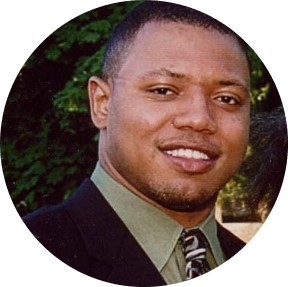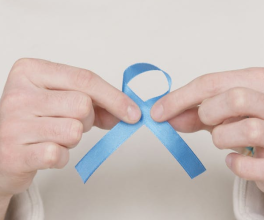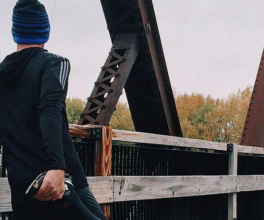
Overcoming Fear and Predispositions of Invincibility
Thoughts on Health Inequities in the African American Community

This Black History Month, Olympus is spotlighting equity in healthcare through the voices of our African American Colleague Affinity Network (CAN) members. Hear from Jules Murrary, Video Clinical Specialist, as he discusses what he believes is at the root of health inequities in the African American community.
Olympus: Being part of the African American Community, how do you advocate for your healthcare and what does it mean to be an advocate for your health?
Jules Murray (JM): Advocating for any cause begins with a fundamental understanding of the impacted community, i.e., grievances, history, nuances, etc., followed by education. Thus, before advocacy, we must understand how and why proper healthcare lacks in the African American community. It is my opinion that some of the reasons healthcare outright lacks, or lags behind other communities may be because of access, education, and fear.
Access – Healthcare in America is expensive. Far too many in our community may not have jobs that offer health benefits that provide access to see primary care physicians or specialists, and/or, the medications prescribed.
Education – Many of us rely upon home remedies handed down from generations to solve what ails us. While “Grandma’s Serum” may seemingly work, we may miss the true cause of the illness, and/or may go undiagnosed for the true illness.
Fear – Most Black people in America are familiar with the Tuskegee Experiment and/or other experimental medications or surgeries forced upon our community. In addition, it has been well documented that physicians believe Blacks have a higher tolerance for pain versus our White counterparts, and therefore, do not prescribe adequate pain medication.1 These fears have led to historical distrusts of the medical field in America, and consequently, hesitancy in seeking proper medical care and attention.
Therefore, to properly advocate for healthcare within the Black community, my message is to be sensitive to the issues of Access, Education, and Fear, while addressing the disease state. It’s not enough to merely say a drug or technique works without proof, i.e., scientific literature, and/or testimonials. I advocate for healthcare in my community by talking about health issues with friends and family. I try to pass on any scientific research that can support my claims. My hope is that I can alleviate the Fear component of seeing a physician while using Education as a vehicle to disseminate information.
To me, being an advocate for my health is the willingness to overcome fear and predispositions of invincibility; to have uncomfortable conversations about my own conditions.
Olympus: Can you share a story of a time where you experienced health inequity and what do you think can prevent that experience from happening again?
JM: Health Inequity hasn’t happened to me directly, mainly because I don’t go to the doctor enough – I usually let several years pass between appointments. However, when my wife was pregnant, I felt like the OB/GYN was very short with us, and we felt rushed. I’m certain that to the doctor this pregnancy was routine and that she was just trying to maximize the number of patients she could see. But we were soon-to-be new parents and hoped for a more patient, attentive approach. Even after delivery, it seemed like the doctor was rushing to the next patient and pay opportunity.
At least based on this experience, I’d ask physicians to slow their approach and treat each patient – Black or White – with the same amount of time and consideration.
Olympus: What is it like as an African American working at Olympus?
JM: I’ve only been with Olympus six months, on a newly developed team, as a Video Clinical Specialist. Since the earliest of days of the team, however, our Director encouraged me to think out of the box and forward any new ideas to her and my manager. I’ve felt empowered to have frank and honest discussions about any topic with the management team.
Olympus: Now that you work for Olympus, do you now know more about colonoscopies than you ever thought you would?
JM: It’s funny you ask this question, a little backstory first…I remember years ago when former TODAY Show host/CBS Anchorwoman, Katie Couric, lost her husband to colon cancer. I remember her campaign, urging everyone to get checked out. I remember the parade of physicians who came on TV saying this was a preventable death. Then, a few years back, up-and-coming actor, and star of blockbuster film Black Panther, Chadwick Bosman, also died of colon cancer.
While preparing for the interview to join Olympus, I knew the company made the colonoscopes used to find polyps that would determine if indeed someone may have colon cancer. After joining the organization, I was able to take a deep dive to see how exactly our equipment is used and what the procedure entailed. I was even able to get hands-on experience with the actual devices used during my training. I found it fascinating!
The added bonus is that I’m now of age to have my own colonoscopy performed. Several of my friends and family are also in the same age range, yet everyone is a bit timid about it – for obvious reasons. I used myself as a guinea pig to learn firsthand about the experience from beginning to end, just in the last few weeks! Being just recently removed from the procedure, I can confidently say that while the prep work wasn’t fun, there was no pain, and overall, it’s minimum discomfort for the peace of mind knowing that I’m as healthy as ever! Now I can tell all my friends and family, “Go get your colon checked! Don’t let pride get in the way of good health!”
Learn more about Diversity & Inclusion at Olympus.
Learn more about colonoscopies and colorectal cancer.
1 Hoffman KM, Trawalter S, Axt JR, Oliver MN. Racial bias in pain assessment and treatment recommendations, and false beliefs about biological differences between blacks and whites. Proc Natl Acad Sci U S A. 2016 Apr 19;113(16):4296-301. doi: 10.1073/pnas.1516047113. Epub 2016 Apr 4. PMID: 27044069; PMCID: PMC4843483.
Jules Murrary is an employee of Olympus Americas, Inc. The statements contained herein are his experiences, thoughts, and opinions. Please talk to your doctor regarding your personal health.





